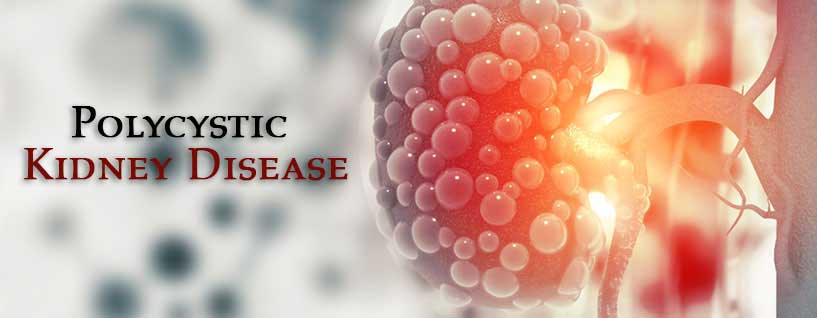Technological innovations play a vital role in reforming the health care sector. With technological advancements, it has become possible for healthcare professionals to offer a quality life to all patients suffering from different kinds of diseases. With the help of modern equipment and high-tech devices, doctors get a helping hand that does its work perfectly. However, there are many such diseases for which modern science has no cure. Among them is Polycystic Kidney Disease, which is the most common type of Chronic Kidney Disease.
A Brief Intro to Polycystic Kidney Disease
The kidneys have tiny filtering units within them. These filtering units detoxify the blood from waste compounds that ultimately get removed by the kidneys through urine. However, when there is damage in these filtering units or when the kidneys are slightly damaged, kidneys can gradually develop multiple sacs filled with fluid, known as Cysts.
Hence, in many cases, PKD patients do not seek treatment until the disease becomes severe and starts showing its symptoms. This is why more than 60 to 70 per cent of Polycystic Kidney Disease patients are put on a lifetime kidney dialysis since there is no other treatment for PKD in allopathy.
Need For Kidney Transplant in PKD
It has been observed that most kidney patients who are advised for kidney dialysis go through dialysis sessions for many years. But since Dialysis is not a cure, they only end up making their condition more severe. In that case, the only option left with the doctors is to advise these patients for Kidney Transplants.
Also Read - The Leading Treatment for Polycystic Kidney Disease
When it comes to kidney transplants, there are various complications involved in the process. These include:
- Search of the donor
- High Costs
- Search for compatible Blood Group donor
- Risk of pre or post-transplant complications, etc.
As per the reports, thousands of kidney disease patients are waiting for a kidney transplant. But because of a high number of kidney patients, the government and private healthcare institutions are unable to offer such services to all the patients. Hence, most of these patients end up going through Kidney Dialysis sessions throughout their lie in wait for a transplant.
Is Kidney Transplant in Polycystic Kidney Disease Effective?
In a true sense, there is no point in discussing the effectiveness of kidney transplants for kidney patients. Since it is the only option left for PKD patients to live a healthy life, many patients are forced to undergo transplants. However, the following sections of the article will explain whether kidney transplants are successful and whether kidney patients with Polycystic Kidney Disease experience the same problem even after a transplant.
Does PKD Recur After A Transplant?
Polycystic Kidney Disease is of two types:
- Autosomal Dominant Polycystic Kidney Disease
- Autosomal Recessive Polycystic Kidney Disease
It has been observed that the patients suffering from a chronic case of Autosomal Dominant Polycystic Kidney Disease or ADPKD account for fifteen per cent of the total kidney transplant cases, which makes it a severe disease. Before getting a kidney transplant, several tests are run on the patient taking the new kidneys and the patients giving the kidneys.
If the tests are successful and no abnormalities are found, the doctor proceeds with the surgery. However, in case of High Blood Pressure or a severe stage of Diabetes, the doctors usually do not prefer doing a transplant as there is a high risk of heavy blood loss that can lead to the patient's death. Hence, Kidney Transplant is a very complex and complicated procedure.
Now coming back to the blog's topic, we will be discussing whether ADPKD patients can face the same situation after getting a transplant. As per the reports, the recurrence of ADPKD in patients after a kidney transplant is no existence. There has been no such case when an ADPKD patient again suffered from the same situation after getting a transplant. However, it does not mean that after the transplant, a patient becomes healthy life before. Let us understand why.
Post-Transplant Complications
As per the previous records of the kidney transplant patients, it has been observed that most of the kidney patients with new kidneys experienced various other complications. There was an increased risk of dangerous complications like Skin Cancer and Post-Transplant Diabetes Mellitus.
It proves that whatever the reason be and whosoever the patient is, a Kidney Transplant will never be the best option when it comes to treating Polycystic Kidney Disease. Also, it has been noted that for all those patients who got a successful kidney transplant, their kidneys only work fine for up to a period of five to ten years. After that, they have to again go through Kidney Dialysis or search for a new kidney donor if the condition becomes severe.
Also Read - To Know About Nephrotic Syndrome Problems and Treatment
Also, you must understand that a severe case of Polycystic Kidney Disease might affect other organs of the body. Hence, even if the patient gets a kidney transplant, he might soon suffer from organ failure, which could be life-threatening.
Role of Ayurveda
When it comes to Ayurveda, the effect of ADPKD can be successfully reversed in the patients. Ayurvedic Treatment for Polycystic Kidney Disease includes Ayurvedic medicines and lifestyle changes that attack the root cause of the problem, thereby giving a permanent, safe and natural solution to Polycystic Kidney Disease.












0 Comments